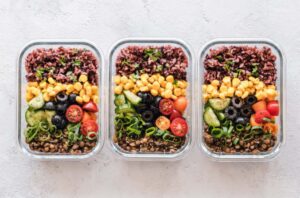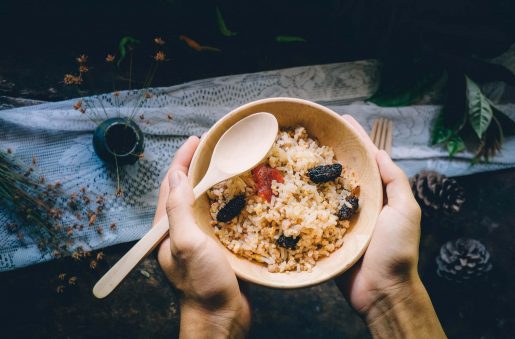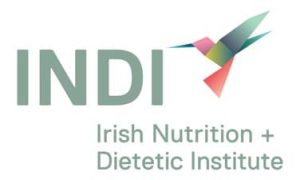An estimated 15% of the workforce in the Republic of Ireland and Northern Ireland is employed in shift work (Safefood.ie). Shift work entails working hours outside the standard working week, and may involve evening, weekend and rotating shift patterns. It has been demonstrated that shift work can have a negative impact on health, increasing the risk of chronic disease (long-term or incurable illness). Much of this is potentially linked to disruption of the normal circadian rhythm (“body clock”).
What is the Circadian Rhythm?
Circadian rhythms are physical, mental, and behavioural changes that follow a daily cycle. They are cycles that tell us when to sleep, wake and eat. Your circadian rhythm tends to coincide with the cycle of daytime and night-time, and is generally how it works best. For shift workers working through the night and then trying to sleep during the day the circadian rhythm can become disrupted and this can then result in adverse health outcomes.
Due to the disruptive nature of shift work and subsequent erratic routine, lifestyle behaviours may be negatively influenced by shift work, which may account for a potentially increased health risk. Within shift workers, meals tend to be more erratic and sleep tends to obviously be disrupted. Increased snacking and higher intakes of processed foods has also been observed in some shift workers. In addition, research carried out by Safefood Ireland demonstrated that respondents reported that a lack of time, poor availability of healthy food and tiredness can all lead to a reliance on processed or convenience foods, resulting in poor diet quality (safefood.ie).
Tips & Tricks On Managing The Night Shift
Unfortunately many roles require some degree of shift work. So if we have to work, which (fortunately or unfortunately) we all have to, what can we do to manage and prepare in order to optimise our nutrition and health while working?
Stick to a regular meal pattern
Stick to a normal intake of 3 main meals and 2-3 snacks over a 24-hour period but avoid large meals between midnight and 6am. Research has shown that it is important to stick as closely as possible to a normal day and night pattern of food intake. Try to eat your biggest meals at the beginning and end of the shift.
Ensuring your main meals are balanced around colour (fruit and vegetables), whole grain carbohydrates and good quality protein with a small amount of healthy fats will aid satiety and keep energy levels stable.
Plan your meals
If you are working shifts overnight and sleeping during the day alongside having the responsibility of running a family home, it is important to be prepared for your work days. Thinking ahead of what meals you will need/want will depend on your shifts.  Avoid quick solutions such as pot noodles, packet soups/pastas. These tend to be high in salt, won’t provide much nutritional value and generally are not very filling. Making a shopping list and doing the shop on your days off will help, which leads on nicely to our next point.
Avoid quick solutions such as pot noodles, packet soups/pastas. These tend to be high in salt, won’t provide much nutritional value and generally are not very filling. Making a shopping list and doing the shop on your days off will help, which leads on nicely to our next point.
Batch cook and portion out
This tip is well known and will find you thanking yourself for having been so prepared when halfway through your night shifts. Having a range of meals you can batch cook on your day off is key. See below for some batch cooking meals ideas. Keep your old take-away containers and use these to portion out meals either keeping in the fridge for the next two to three days or put some in the freezer for later on in the week or month.
Make a night shift survival pack
This again leads on from planning. Have a night shift pack for keeping snacks, meals and water bottle in. Keep it in a cool bag. Have extra snacks in your bag for shifts for when you may be feeling hungrier (hunger changes and is not the same every day of every month) or if you get held up after a shift (this happens a lot in the healthcare setting unfortunately). Keep reading for ideas of what to stock in your pack.
Bring snacks
Like mentioned above, nobody’s hunger is consistently the same. Some days you may feel hungrier than others. This can depend on hormones, menstrual cycle, activity and stress levels. If you are hungrier ensure you are feeding yourself. Having some high fibre and protein based snacks will help fill you and keep you fuller for longer. Try to avoid frequent high sugar snacks or treats. Have mini-size chocolate or muffin options available if necessary to encourage better portion control. Don’t rely on vending machines or fast-food restaurants to buy your snacks. See below for snack ideas.
Keep hydrated
Hydration is really important, especially if working in warm settings (e.g. a hospital ward). Unfortunately the reality is that it may not be possible to get the toilet routinely while working a night shift. If this is the case for you, make sure that you are getting in a good amount of fluid earlier on in the day before your shift. Generally water is the best form of hydration. Keep a litre water bottle with you, have it cold in the fridge before you go to work. Add some lemon/lime slices or no added sugar squash if you find plain water unappealing. Urine is the best indicator of hydration – a light straw colour is what we should be aiming for.
Moderate caffeine intake
Yes coffee and tea contribute to your fluid intake but they also contain caffeine. Caffeine can give us that energy boost that we sometimes feel is needed during a night shift, however after that boost is the inevitable energy dip. Over time this is not going to help you get through a shift and will potentially impact on your sleep the next day. Opt for decaffeinated tea/coffee during shift work or limit to one caffeinated beverage.
If you can get some fresh air or light exercise before bed
This will depend on your shift and what you need to do when you get home. Often shift workers are getting home just as it’s time to get the kids to school. If you can try and get a minimum of ten minutes of fresh air before you get yourself to bed. This could be walking the kids to school or dropping them off and going for a walk afterwards. Some may opt to park the car ten minutes away from work to get some fresh air in before you jump in the car home. This will promote sleep and re-engage your circadian rhythm with some daylight exposure.
Promote healthy sleep
How much and when you sleep after a shift will depend on the hours and times of each shift. Incorporating some fresh air before and after your shift as discussed above, limiting blue light exposure before sleep (phones, computers), limiting caffeine and setting an alarm will all support you in getting sleep but not taking too much sleep at the same time.  Eat a small meal before you are due to finish work and go to sleep. This will help prevent disturbing your sleep later due to hunger.
Eat a small meal before you are due to finish work and go to sleep. This will help prevent disturbing your sleep later due to hunger.
Supplement
Take a vitamin D supplement. Guidelines recommend everyone should take 10 micrograms of vitamin D daily because we don’t get enough sunlight in Ireland. If you’re doing night or shift work, the chances are you are getting even less sunlight. We cannot get enough vitamin D from diet alone (sources include oily fish, fortified milk and dairy, egg yolks). Supplementation is required to meet requirements.
When working night shifts is it a good idea to opt for protein and whole grain carbohydrate foods before you begin your work. Both these give sustained energy and protein can keep you feeling fuller for longer and means you are less likely to reach for a high fat, high sugar snack mid way through your shift. The B -vitamins in the whole grain carbohydrates will also help keep your brain functioning effectively throughout the night shift.
- Apple and cheese pieces
- Whole grain bagel with peanut butter
- Oatcakes with hummus and cucumber
- Hard boiled eggs
- Greek yoghurt with mixed fruit and oats
- Porridge with raisins and pecans

- Vegetable sticks and hummus/cottage cheese
- Tuna/salmon/egg rolls or sandwiches
- Chicken slices
- Dried fruit and nuts
- Vegetable soup
- Couscous salad
- Oat and fruit smoothie
- Wholemeal pasta salad
- Beans on toast
- Easy to carry whole fruits and whole vegetables









